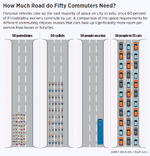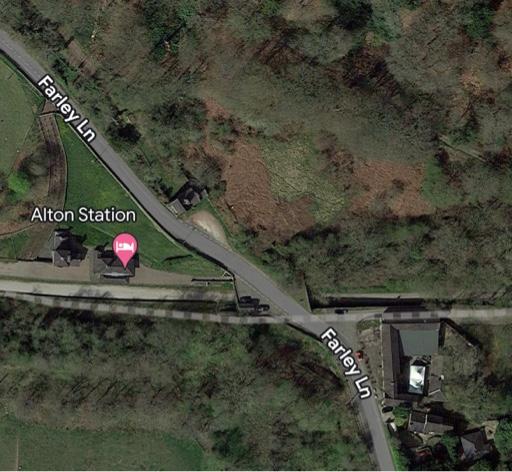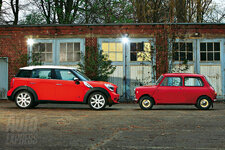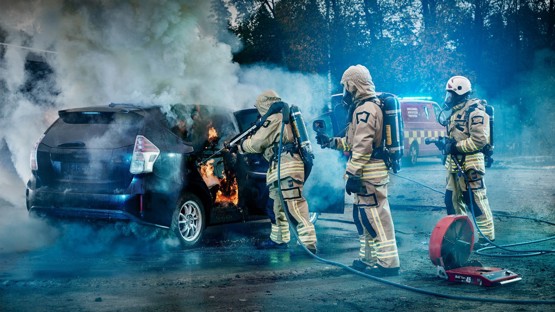Electric cars certainly ain't the future. Rishi Sunak might think so, but the experts don't. Why?
To start, Space:
Electric cars offer no solution to creating additional capacity on our roads. They're an innovation that's somewhat more environmentally friendly (notice the caveat) but the M6 will only ever have so many lanes. Why not add more lanes you ask? Because adding more lanes creates "induced demand" over time, which takes you back to square one. "Just one more lane and I'll fix traffic!" - said every US highway engineer, yet look at the problems they face. Not only this, but by and large electric cars are bigger than their petrol/diesel counterparts, attributed to the additional space required to house the battery, and the added weight, which brings me onto point no. 2:
Road Maintenance:
With bigger, heavier cars guess what that means for the roadway? That's right, more of those dreaded potholes! You can already see this today, particularly in inner-city areas where maintenance budgets are lower than that of motorways/dual carriageways. The sheer weight of the vehicles which can be attributed to the battery, puts extra pressure on the road surface. Okay so the fix is we spend more on road upkeep? Alright sure, but we're now adding more to our carbon emissions output to a)produce the materials, b)transport them and c)install them.
Energy Source & Charging Infrastructure
Your car is powered by electricity, great! That's definitely better than the diesel/petrol alternative, but that energy has yo be generated somewhere. We're in the paradoxical situation of wanting to electrify everything, but not yet living up to our responsibilities to produce electricity sustainably. If we want to provide electricity for all these vehicles, we're going to have to accept out views being disturbed by wind turbines, or local fields being turned into solar farms. Or we invest in nuclear, but that's a whole new can of worms!
Better Alternatives:
Cars are inherently a very poor use of space. More often than not a 5 seater car only has one person in it. Compare this to a bus where most seats are filled. An even better use of space is cycling. Now I accept this isn't for everyone and is most definitely limited to shorter trips, but nevertheless for short journeys is far more efficient. I love to use this graphic below when describing this usage of space:
This isn't to say cars don't have their place. If you live rurally then chances are your local area is never going to have the critical mass to support a public transport system and you're probably not going to want to cycle 10 miles to your nearest town centre!
That said, in most part this country is densely populated, and with the right investment in sustainable transport infrastructure: cycling lanes, buses, car-sharing clubs, and crucially trains for long-distance travel, we can move a far greater amount of people using far less energy, far less space and reach net-zero targets.
Take HS2. Terribly marketed, as if speed is all people care about. In fact it was designed to take the fast trains of our (very extensive) existing railway network giving them their own pair of tracks, thereby freeing up space on the busiest mainlines for for local services so people can actually rely on sustainable alternatives to cars travel, and actually find a seat! Not only this, but it was to also free up space to move freight by rail, which again is far more efficient than by road (and creates more road space without the need for expansion which is no solution anyway) Obviously our car and helicopter obsessed prime minister ditched it in an act of short-sighted thinking and failed to acknowledge advice from experts. In a great many cases people drive because they have to, not because they want to. Give them a more attractive, reliable, sustainable alternative and more often than not they'll switch!
So all in it's less a question of "are electric cars the future?" and more "what role should electric cars have in our future?"
We have mountains of evidence to show car travel is the most inefficient and environmentally damaging method of travel (including electric cars) and we have options to invest in sustainable, efficient alternatives where applicable. Doing so is nothing more than a political choice. For large infrastructure projects like HS2, funding comes from a "grant in aid" to the government, which essentially means we borrow from ourselves (The Bank of England) against national debt, on the basis of seeing economic returns on the project that money is borrowed for. Contrary to what this government has been pumping out, you cannot "reallocate" those funds to spend on other things.
To sign off, with this being within an Alton Towers geared forum, it'd be criminal for me not to mention what alternatives here might be:
"People drive to the park because it's easy and there's no alternative" - mostly true, with the exception of a few coach services and those brave enough to risk missing a bus connection at Stoke station!
Guess what though? The park sits on a disused railway line that if reopened, would not only benefit visitors to the park (from built-up areas of the North West and East Midlands) but also the wider network, by creating extra capacity between two major urban agglomerations and making things more reliable on existing lines (similar to HS2's role)
If reopened, huge swathes of urban Britain would be able to reach the park by rail (perhaps with a change of trains) and it might be very wise to create "Park & Ride" facilities at nearby nodes of the motorway network (Meaning visitors that have no choice but to drive need not navigate the extensive country roads to access the park, but perhaps park in a multi-storey and take a free, regular shuttle bus from there to the park) By investing in both these options, not only are we making things more sustainable environmentally, but actually our favourite Alton Towers would stand to gain by opening up room for park expansion onto areas currently covered in surface car parking, which is an incredibly poor utilisation of space.
It's all about getting out of the car brain mindset we've been so used to, and thinking about the bigger picture long-term.
Marshy.
As an EV owner and someone who’s banged the drum for Alton station for a long time seems like a great point to jump in.
Agree with EVs don’t resolve the capacity issue, and absolutely id like to see the UK move to a “your home is your power station” model or community solar farms and turbines.
Nevertheless in terms of Alton Station your absolutely right, it should be in the long term plans of the park, council and area to take traffic off the road. If local residents want less traffic then this should be the solution. It benefits them, it benefits Alton as it opens them up to more visitors and allows them potentially use more space, and it would be completely unique and charming.
Practicalities wise, needless to say it’s complicated. There are already alleged plans afoot to reopen the “Stoke to Leek” line, this would be a WCML connection from Stoke station to Leekbrook Junction. This is a significant undertaking, will more than likely never happen and is 5 years away minimum.
At Leekbrook junction the track heads in 3 directions
1) Towards Caldon Lowe, past peak wildlife park and to Caldon Quarry where it has to terminate
2) Towards Leek where an expansion/station is already due to open this year
3 Towards the Churnet Valley where the line currently stops at Froghall but could continue on through Oakamoor tunnel, Oakamoor and onto Alton. The trackbed continues on to Denstone where it terminates just after Denstone station as a house was built on the line.
The complications:
1) The track from Stoke to Leekbrook is owned by Network rail and it is meant to be a line of national interest due to access to the aforementioned Caldon Quarry in times of war. It is meant to be “openable” in 48 hours. Anyone who knows this line knows this is not the case
2) The trackbed south of Froghall to Alton is owned by Staffordshire county council, and sadly the track was lifted not that long ago. There are some very wealthy, old residents in Oakamoor/Alton who strangely would fight tooth and nail to oppose any expansion.
3) Alton station building is owned by the national trust, but the Alton bridge building just after it (black boarded up windows) is actually owned by Alton Towers themselves and IMO would make a great TTC.
The options:
1) When leek station opens this year, look at options for expanding the line from Froghall to Alton, and use Leek as a park and ride location
2) Expand past Froghall to Alton and on to Denstone and use that as a park and ride location too (serving A50 traffic)
3) Do the above and wait for the eventual link back up with the mainline at Stoke, but that is years and years away.
As normal austerity, the politicians, vested interest and the elderly have failed to grasp and incredible and unique opportunity. The chance for serious, sustainable growth in a unique setting that only the UK can offer.
The thought of getting off a train, in a crisp October morning seeing Alton castle on the hill sells tickets alone for me. Nowhere else in the world can offer that history.
But alas, despite wishing this into existence for over a decade, common sense won’t prevail






